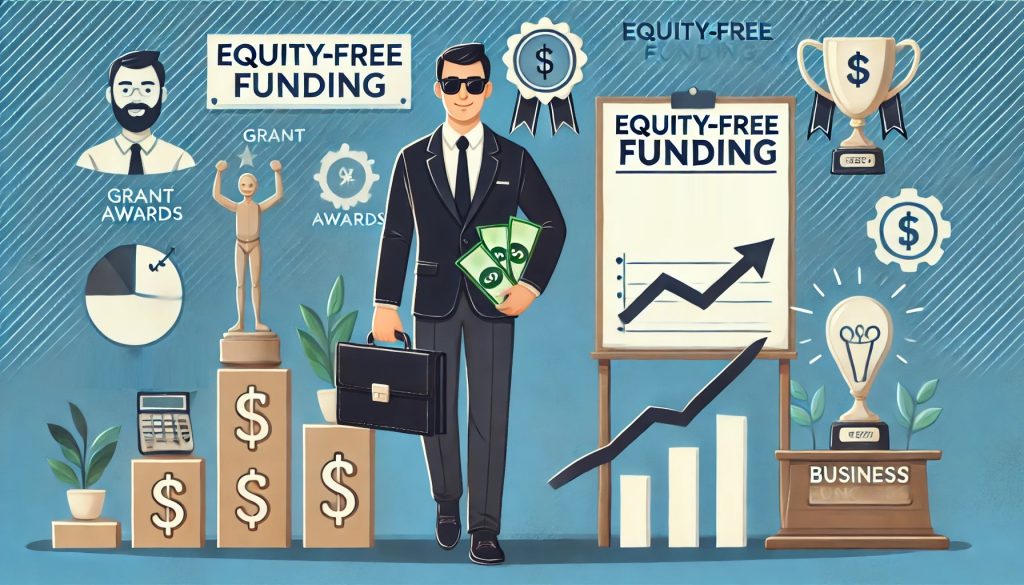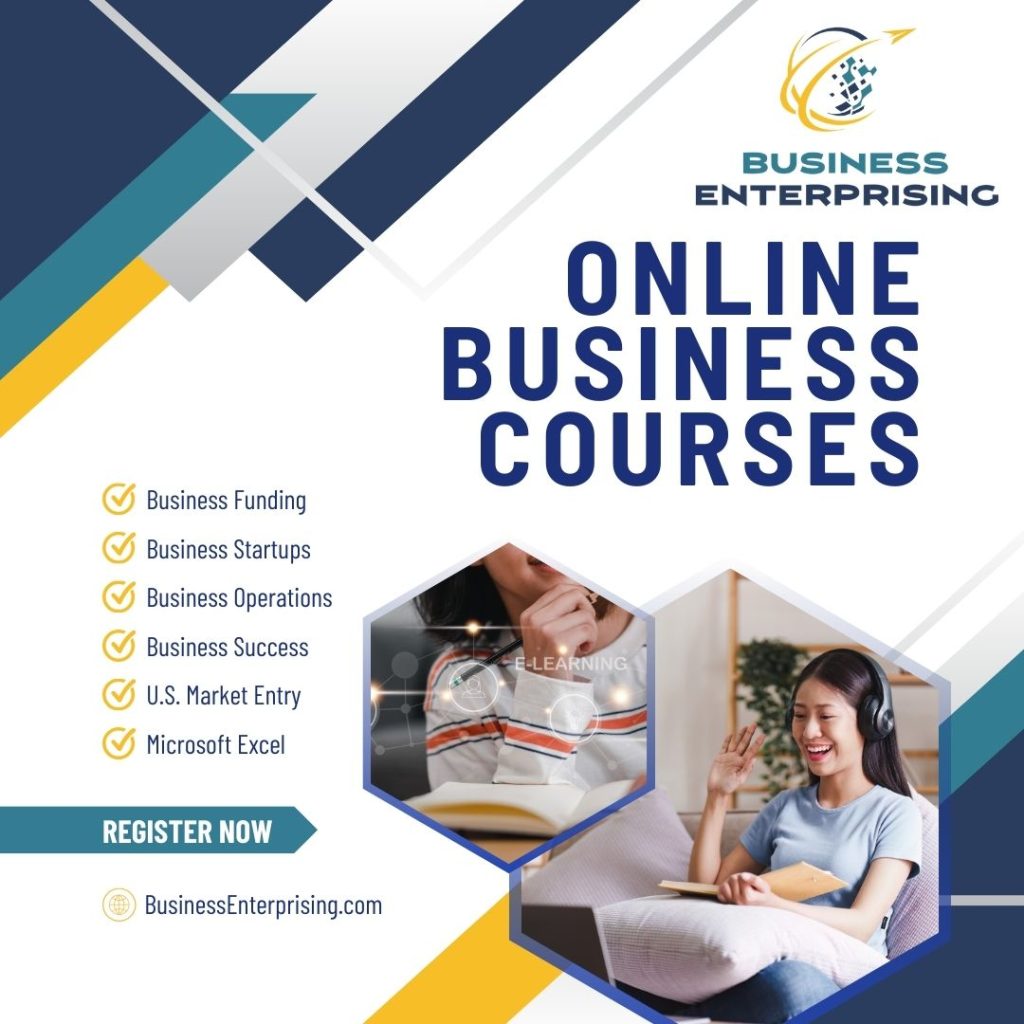 Equity-free business funding offers a unique opportunity to grow your business without sacrificing ownership. This type of funding allows you to retain full control, keeping your focus on your vision. Equity-free options, such as grants, crowdfunding, and competitions, provide accessible ways to secure capital while staying independent.
Equity-free business funding offers a unique opportunity to grow your business without sacrificing ownership. This type of funding allows you to retain full control, keeping your focus on your vision. Equity-free options, such as grants, crowdfunding, and competitions, provide accessible ways to secure capital while staying independent.
With equity-free funding, you can raise the resources you need without bringing in investors. This approach can be especially helpful for startups and small businesses looking to scale. Although competition for these funds can be high, well-prepared applications stand out and improve your chances.
Understanding the different funding options available helps you find those best suited to your business needs. By exploring equity-free business funding, you empower yourself to build a sustainable, growth-focused path on your terms.
Understanding Equity-Free Funding
Equity-free business funding is a financing option that allows you to access funds without giving up ownership in your company. Unlike traditional equity-based funding, where investors receive shares in exchange for capital, equity-free funding does not require you to part with any stake. This difference is significant for founders who want to maintain control over their business decisions and growth strategy.
One of the main advantages of equity-free funding is that you retain full decision-making power. You don’t have to consult shareholders or seek their approval when making key choices. This flexibility can make it easier to follow your vision and adapt quickly to changes. Furthermore, equity-free business funding allows you to keep all future profits rather than sharing them with investors, which can contribute to long-term financial stability.
Equity-free funding options come in various forms, such as grants, crowdfunding, and competitions. These opportunities are often offered by government programs, private foundations, or revenue-based financiers, each providing funds without requiring ownership. For startups and small businesses, these alternatives can be especially valuable, as they allow you to scale operations or refine products without sacrificing ownership.
Types of Equity-Free Funding Options
Equity-free business funding includes various options that provide financial support without requiring you to give up ownership. Grants are a popular type of equity-free funding, especially for startups and innovative projects. Often provided by government agencies or private foundations, grants offer funds based on specific eligibility criteria. For instance, the Small Business Innovation Research (SBIR) program provides grants to businesses developing technology that meets specific federal needs. These funds don’t require repayment, but they do often require detailed reporting and measurable results.
Government programs also provide equity-free funding for businesses with social impact or technological innovation goals. Programs may target industries like renewable energy, education, or healthcare. For example, the U.S. Department of Energy offers grants for small businesses creating clean energy technologies. These funds can be competitive, but they offer valuable support for mission-driven ventures.
Crowdfunding has also gained popularity as a type of equity-free funding. Platforms like Kickstarter allow you to raise funds directly from supporters interested in your products. Crowdfunding typically requires a strong marketing approach to attract potential backers, but it allows you to raise significant capital without giving up equity.
Competitions are another way to access equity-free funding. Startup contests, like the MassChallenge, award cash prizes to winning companies without requiring any stake in the business. These competitions can also increase your exposure and connect you with potential customers or partners.
Revenue-based financing is another option that lets you retain full ownership while accessing funds. With this approach, you repay investors through a percentage of your revenue until the debt is repaid. This type of equity-free business funding provides flexibility, as payments adjust based on your earnings.
Advantages and Disadvantages of Equity-Free Funding
Equity-free business funding offers several key advantages for entrepreneurs, particularly the ability to maintain full ownership. By keeping all your equity, you retain complete control over decision-making and future profit distribution. This can be especially valuable as your business grows, allowing you to make strategic moves without needing investor approval. Additionally, equity-free funding doesn’t dilute ownership, which can be beneficial for attracting investors down the line when your valuation may be higher.
However, there are challenges associated with equity-free funding that you should consider. Many funding programs, especially government grants and competitions, have strict eligibility requirements. These requirements often limit funding to specific industries, business stages, or impact-driven ventures. Meeting these criteria can require substantial time and resources, as you’ll need to align your application closely with the funder’s goals. Furthermore, because equity-free funding is highly desirable, application processes are typically competitive.
Another consideration is the time and effort involved in applying for equity-free business funding. Applications often require extensive documentation, such as detailed business plans, financial projections, and reports. This can create a significant workload, especially for small teams, and you might face long waiting periods for approval. Additionally, some funding sources, like revenue-based financing, may require regular repayments based on your earnings, which can impact cash flow. Despite these challenges, equity-free funding remains a valuable resource for entrepreneurs aiming to grow while keeping full ownership.
Popular Platforms and Programs for Equity-Free Funding
There are several well-known platforms and programs available for equity-free business funding. The Small Business Innovation Research (SBIR) program is a prominent example, offering federal grants to small businesses focused on technological innovation. This program supports companies working in fields such as defense, energy, and health. With multiple grant phases, SBIR funding helps companies progress from concept to market-ready products.
For startups seeking community support, Kickstarter provides a popular crowdfunding option. Through Kickstarter, you can promote your project and gain financial backing directly from interested supporters. Crowdfunding on Kickstarter is equity-free, allowing you to raise funds without giving up ownership. It also creates an opportunity to market your product and gauge customer interest before fully launching.
Foundations like the Ewing Marion Kauffman Foundation and the Gates Foundation also offer grants to entrepreneurs, especially those focusing on social impact. These foundations provide equity-free grants to support businesses addressing challenges in education, health, and economic development. Their support can help you build your venture while making a positive social impact.
Competitions, such as MassChallenge and the Startup Battlefield by TechCrunch, offer prize money to top-performing startups. These programs provide not only financial rewards but also mentorship and visibility within the startup ecosystem. Winning a competition can boost credibility, attract media attention, and connect you with industry experts.
Overall, these platforms and programs provide valuable avenues for equity-free business funding, helping you grow without giving up control of your company.
Application Tips for Equity-Free Funding
When applying for equity-free business funding, careful preparation can make a significant difference in your application’s success. Start by reviewing the eligibility requirements for each funding source. Some programs prioritize specific industries, business stages, or social impacts. By tailoring your application to match these criteria, you increase your chances of standing out.
Creating a strong business proposal is also essential. Your proposal should clearly outline your product or service, target market, and business model. Focus on what makes your venture unique and how it addresses real market needs. Funders often prioritize applications with a well-defined problem and a feasible solution, so articulate these points concisely. Additionally, show how the funding will support your next steps, whether it’s expanding operations or enhancing product development.
Showcasing your business’s potential for growth and impact is another key component. Funders are often interested in long-term results, so outline your goals and projected milestones. Include data, if available, that demonstrates market demand and your capacity to meet it. Highlight any traction you’ve gained, such as revenue, customer interest, or partnerships, as this can lend credibility to your application. Addressing these elements will help present a compelling case for equity-free business funding and enhance your application’s overall strength.
Real-Life Success Stories and Case Studies
Several companies have achieved notable growth by leveraging equity-free business funding. One example is Aquacycl, a clean technology startup that used grants from the Small Business Innovation Research (SBIR) program to develop its wastewater treatment solutions. These grants allowed Aquacycl to test and refine its technology without sacrificing ownership. By focusing on environmental impact and innovation, Aquacycl met the program’s criteria and gained substantial financial support. This funding helped them bring their technology to market faster and attract additional clients in the industrial sector.
Kickstarter also offers a success story with the company Exploding Kittens, which launched a unique card game on the platform. Their crowdfunding campaign raised over $8 million, making it one of the most-funded projects on Kickstarter. By building a strong, engaged community around the game concept, the team generated excitement and reached a large audience. This equity-free funding approach provided not only funds but also early customer validation. The success on Kickstarter allowed Exploding Kittens to scale production and grow without investor involvement, maintaining complete control over creative and operational decisions.
Another example is OpenBiome, a nonprofit focused on microbiome-based research, which received grants from health-focused foundations. With this equity-free business funding, OpenBiome expanded its reach to provide microbiome treatments for patients in need. The grant funding allowed the organization to advance its research and treatment capabilities, helping thousands of patients while retaining its mission-driven approach. These examples demonstrate how companies can effectively use equity-free funding to scale, innovate, and maintain control over their mission.
Conclusion
Equity-free business funding provides an appealing route for growing your business without giving up control. By exploring options like grants, crowdfunding, and competitions, you can access valuable resources while keeping ownership intact. This approach helps you retain decision-making power, ensuring your vision remains at the forefront. Many successful companies have leveraged equity-free funding to scale, proving its effectiveness as a strategic choice.
Preparing a strong application is essential, as competition for these funds can be high. Carefully match your goals to funders’ criteria and highlight your growth potential. Equity-free funding can be an invaluable tool, offering both financial support and the freedom to steer your business. By exploring these options, you create opportunities for sustainable growth and independence.


